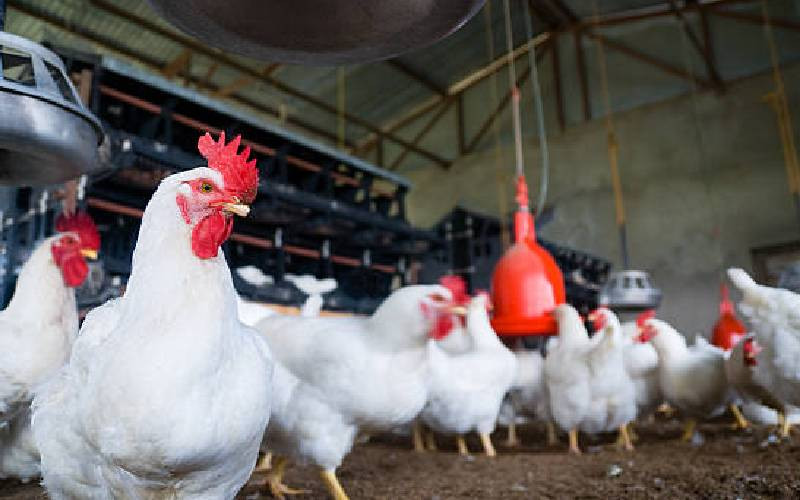
Animal health expert George Okwirry Lang'o agrees with Mr Ogolla,that there isn't much of a difference between broiler chickens and indigenous chickens. [iStockphoto]
A former management accountant at Kenchic has said that contrary to what many people believe, eating broiler chicken has no side effects.
Enock Ogolla, now an expatriate in Tanzania, says more than three-quarters of chicken consumed in Kenya are broilers, "so if there were any side effects, many would be hospitalised."
Animal health expert George Okwirry Lang'o agreed with Mr Ogolla, saying there isn't much of a difference between broiler chickens and indigenous chickens.
"Broiler chickens are commercially reared, and their rapid growth is attributed to superior genetics, good nutrition, and being highly flavourful, and nothing else," says Dr Lynn Namarome, the chairperson of the Kenya Pig & Poultry Veterinary Association, a branch of the Kenya Veterinary Association.
Growth promoters
According to Dr Namarome, there are no growth promoters or synthetic steroids used in Kenyan poultry production.
"This is an illegal practice that can land someone in jail," she said.
Dr Namarome said while broiler chickens are supposed to be sold between 30 and 40 days, this is purely for economic reasons.
After 40 days, the birds consume heavily, making the farmer's life more expensive. They eat a lot after 40 days and given how expensive chicken feed is, a poultry farmer does not make money by keeping the birds for so long.
"Our profits used to be drastically reduced when we didn't sell the birds quickly," Ogolla said.
He agreed with Dr Namarome on the aggressive consumption of broiler chickens as they age.
Dr Namarome said that the use of antibiotics on birds is regulated and limited to only treating sick birds, and this must be done by a qualified and registered veterinary/veterinarian.
According to the World Health Organisation, the salmonella bacterium is caused by poor hygiene and can come from any contaminated source, not just broiler chickens.
John Kioko, the assistant head of the testing unit at the Kenya Bureau of Standards, says all consumable products on the market have been tested and approved for consumption.
Unfounded fears
He said the public's fear of broiler chickens, as well as the negative publicity, is unfounded.
"We ensure all forms of meat, as well as broiler chickens, are fit for human consumption in our supermarkets, restaurants, hotels, kiosks, and open marketplaces," says Kioko.
According to Samuel Maina, a public health nutrition lecturer at Kenya Medical College in Nairobi, chicken contains protein, which can help with weight management and reduce the risk of heart disease.
It also contains tryptophan, an amino acid that has been linked to higher levels of serotonin in a properly functioning brain; and it contains vitamins, minerals, and nutrients that aid in muscle building, bone strength, and heart health.
Mr Maina said that chicken should be a regular part of one's diet because it contains vitamin B12, which is essential for a healthy nervous system, as well as iodine, which the thyroid gland requires to function properly.
 The Standard Group Plc is a multi-media organization with investments in media
platforms spanning newspaper print
operations, television, radio broadcasting, digital and online services. The
Standard Group is recognized as a
leading multi-media house in Kenya with a key influence in matters of national
and international interest.
The Standard Group Plc is a multi-media organization with investments in media
platforms spanning newspaper print
operations, television, radio broadcasting, digital and online services. The
Standard Group is recognized as a
leading multi-media house in Kenya with a key influence in matters of national
and international interest.











